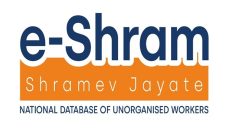A Full Bench of the Madras High Court recently in the case of P Kannan v The Commissioner for Municipal Administration held that challenges to orders of suspension should be analysed based on the facts of each case, after considering the gravity of the charges and rules applicable as reported in Barandbench.com.
A Bench of Chief Justice Munishwar Nath Bhandari and Justices V Bharathidasan and D Bharatha Chakravarthy said that the Supreme Court in Ajay Kumar Choudhary v. Union of India had not laid down an absolute proposition of law that an order of suspension cannot be continued beyond the period of three months.
“Thus, the court should analyze each case on its facts when a challenge to the order of suspension has been made,” the High Court judgment reads.
The High Court underscored that any revocation of suspension cannot be endorsed or directed as a matter of course, and must be based on the facts of each case.
The Full Bench laid down the principles while deciding a reference made by a single-judge that arose from two conflicting judgments on challenges to suspension orders.
The petitioners stated that the issue of prolonged suspension of an employee had been settled by the apex court in Ajay Kumar Choudhary.
However, a Division Bench of the Madras High Court held that the top court’s judgment did not lay down an absolute proposition, while another Bench upheld an order of the single-judge interfering with a suspension order in light of the Supreme Court judgment.
The petitioner submitted that according to Supreme Court, an order of suspension beyond the period of three months without service of a charge-sheet or reasoned order of extension should be interfered with by the High Court.
On examining the Ajay Kumar Choudhary case, the Bench in the instant case noted that it cannot be said that the verdict lays down an absolute proposition of law on suspension, since the principle relied on by the petitioners was not applied in the case itself.
“…taking note of the facts and if paragraphs (21) and (22) are read together it would become clear that even the Apex Court has not applied the direction given in paragraph (21) in view of the filing of the charge-sheet during the pendency of the appeal or litigation before the court.”
With this, it was clarified that in certain cases where charge-sheets were not filed within three months, an order of revocation with a direction to post delinquents to a non-sensitive post could have serious repercussions. Therefore, each case must be tested on its facts, the Court said.
























Add comment